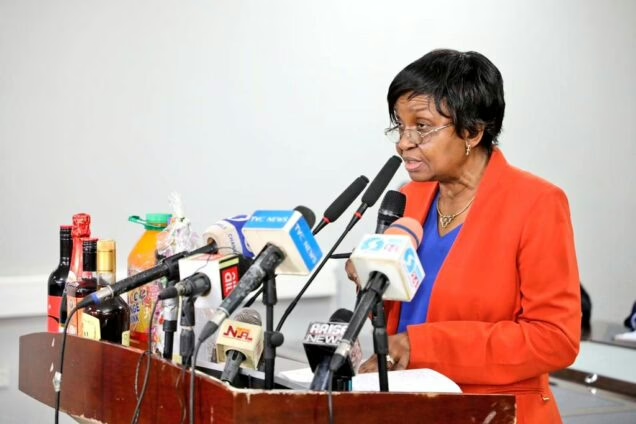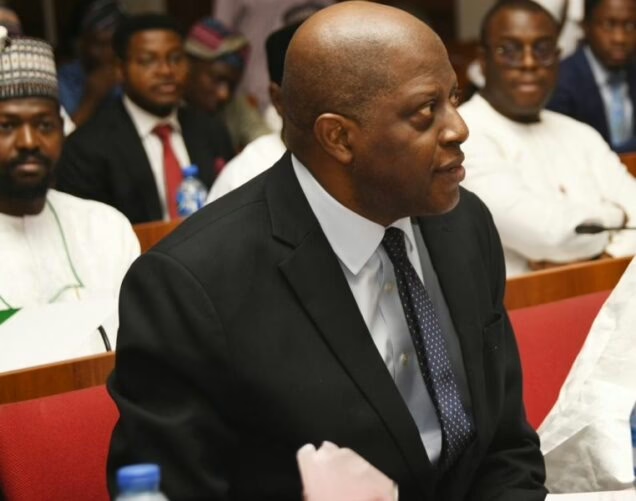By Chinwendu Obienyi
The Central Bank of Nigeria (CBN) was birthed via a draft legislation presented to the House of Representatives in March 1958 and the Act was fully implemented on July 1, 1959.
Since then, the CBN Act, which comprises a legal framework within which the apex bank operates and regulates banks, has been amended five times notably (1991, 1993, 1997, 1998 and 2007).
Within this period, the CBN has been able to cover new institutions in order to enhance the effectiveness of monetary policy, regulation and supervision of banks as well as non-banking financial institutions. Unfortunately in 1997, the federal government enacted the CBN (Amendment Decree No 3 and BOFI (Amended) Decree No. 4) to completely remove the limited autonomy which the bank enjoyed since 1991. This brought back the CBN under the supervision of the Ministry of Finance.
However, the 2007 amendment Act provided that the CBN shall be a fully autonomous body in the discharge of its functions under the Act and the Banks and Other Financial Institutions Act with the objective of promoting stability and continuity in economic management. In line with this, the Act widened the objectives of the CBN to include ensuring monetary and price stability as well as rendering economic advice to the Federal Government.
But those objectives, experts note, could come under threat and weaken the CBN’s position and cause several implications for the economy which the apex bank has worked hard to rebuild owing to lawmakers’ insistence on amending the Act to enable the CBN Governor focus strictly on administrative duties.
In an emergency meeting held at the weekend, the Senate reportedly amended the CBN Act, increasing the Ways and Means borrowing threshold for the FG from 5 per cent to a maximum of 15 per cent from the apex bank.
According to the Senate leader, Ibrahim Gobir, the amendment was required to help the government meet its immediate and future obligations in the approval of the Ways and Means and advances to the FG.
For context, the CBN advances to the FG stood at N700 billion before 2015. However, the borrowing rose to N22.7 trillion as at December 2022. Furthermore, an agency report revealed that the ways and means account for 50 per cent of the domestic debt (Nigeria’s debt stands at over N100 trillion) which amounts to N30 trillion after requests from the FG. This is even more troubling that the monies borrowed and spent without necessary approval from the Senate constitutes a clear violation of the law.
In addition, the CBN Act further stipulates that all advances shall be repaid with the same financial year they were borrowed and if such advances remain unpaid at the end of the year, the power of the CBN to grant further advances in any subsequent year shall not be exercisable, unless the outstanding advances have been repaid”, a violation the FG has repeatedly violated.
Countries experiencing the effects of influenced Central banks
The experiences of Argentina, Turkey, Venezuela, and Zimbabwe show the detrimental effects of politically influenced central banks.
Argentina’s central bank, the Banco Central de la República Argentina (BCRA), has a history of being influenced by the country’s political leaders. This lack of independence has led to chronic inflation, currency devaluation, and repeated economic crises. Turkey provides another example where central bank independence is compromised. President Recep Tayyip Erdogan has exerted significant influence over the Central Bank of the Republic of Turkey (CBRT), often dictating interest rate policies contrary to economic recommendations. Erdoğan’s unorthodox view that high interest rates cause inflation has led to repeated cuts in interest rates even amid rising inflation. This policy divergence has exacerbated inflation, which hit 68.5 percent in March, according to latest official data. Venezuela’s central bank, the Banco Central de Venezuela (BCV), is another example of a central bank under tight government control. The country’s economic policies, driven by political agendas, have led to one of the most severe hyperinflation episodes in history. The BCV’s extensive money printing to finance government spending has resulted in hyperinflation, with rates peaking at over 1,000,000% in 2018. The bolívar has become virtually worthless, necessitating multiple redenominations and a parallel currency system for transactions. The lack of central bank independence has contributed to the collapse of Venezuela’s economy, leading to widespread poverty, food shortages, and mass emigration.
Experts react
Economic experts are of the view that countries seeking sustainable growth should prioritize the independence of central bank institutions. They noted that what is more important is the enshrinement of policies that will encourage the development of a robust financial system that will ensure price stability.
The International Monetary Fund (IMF), in article IV staff consultation report of the board of governors, cautioned the Federal Government against the proposed amendment of the Act establishing the Central Bank of Nigeria (CBN), calling rather for the strengthening of the apex bank.
It stated: “Directors supported the authorities’ intentions to shift to an inflation targeting regime and recommended strengthening central bank independence and communication to ensure a successful transition.
They recommended caution regarding amendments to the Central Bank of Nigeria (CBN) Act that might weaken the central bank’s autonomy”.
Delivering a keynote speech themed: Legislative Oversight: Understanding the dynamics of Central Banking, Member, Presidential Governing Council of Ministry of Finance Incorporated (MOFI)/Lead Consultant, ECOWAS, Prof Ken Ife, explained that both the role of legislation and the CBN are both tied towards shaping policies that would benefit the economy.
Explaining further, Ife noted that one of the primary obstacles hindering effective collaboration is the insufficient flow of information between the legislative and monetary authorities.
He said, “Timely and accurate information exchange is essential for both entities to comprehend the intricacies of their respective roles and make informed decisions. The absence of a comprehensive communication framework jeopardizes the coherence and efficacy of economic policies.
“There have been instances of conflicting legislative and monetary policies which has been observed, leading to a lack of synergy in the pursuit of economic objectives. Misaligned policies can contribute to economic instability, eroding investor confidence and hindering sustainable development.
The imperative for a synchronized approach to policy formulation and implementation becomes evident in light of these challenges”.
Structural impediments within the legislative and monetary institutions present formidable barriers to effective collaboration. Historical factors, bureaucratic complexities, and differing institutional cultures contribute to an environment where the full potential of synergy is not realized.
Addressing these institutional barriers requires a holistic approach involving legislative reforms and strategic interventions”.
According to him, there should be efforts driving towards enhancing the capacity of legislative committees overseeing economic matters.
“This involves providing training and resources to lawmakers, enabling them to grasp the intricacies of monetary policies and economic indicators. Moreover, a transparent and accountable oversight mechanism should be established to scrutinize the decisions of the Central Bank, ensuring alignment with legislative objectives while maintaining the autonomy necessary for effective monetary policy.
There should be a clear balance in independence and accountability which means that Nigeria can consider adopting a model that preserves the independence of the Central Bank while ensuring accountability to the National Assembly. Also, there should be clarity in roles will foster collaboration without compromising the autonomy necessary for effective monetary policy”, Ife suggested.
For his part, the former deputy governor, Kingsley Moghalu, said that the move was wrongheaded and should be dropped.
He noted that such an amendment to the CBN Act of 2007 would finally destroy the institution by disrobing it completely of its institutional independence as enshrined in the Act.
“It would make the bank, a statutory corporation under the law, to become a Ministry or a mere Agency or Department of the Government. And it would render the bank an open playground for politicians who are the custodians of our dysfunctional governance.
Granted, the CBN has already been politicised since mid-2014 when its current governor was appointed. But that is a function of incompetent, selfish political and institutional leadership, not a de jure legal reality”, Moghalu argued.
According to him, “A central bank’s policies and its internal administration should objectively advance the interest of the national economy, not the partisan agendas of political parties or individuals. Imagine a prominent politician from the APC or PDP or any other party appointed the Board Chairman of the CBN”.
Conclusion
Laws generally provide the framework within which businesses operate and investors are usually concerned about the overall legal regime in which they want to operate. If the legal regime does not bolster confidence, investors will be wary about making any investments.
The Act recognises that in order to promote its objectives, the CBN needs to be an independent body.
Hence, like Lars Svensson pointed out, Central Bank independence must be accompanied by accountability to achieve democratically determined objectives of monetary policy which is expected to yield advantages for an economy.











